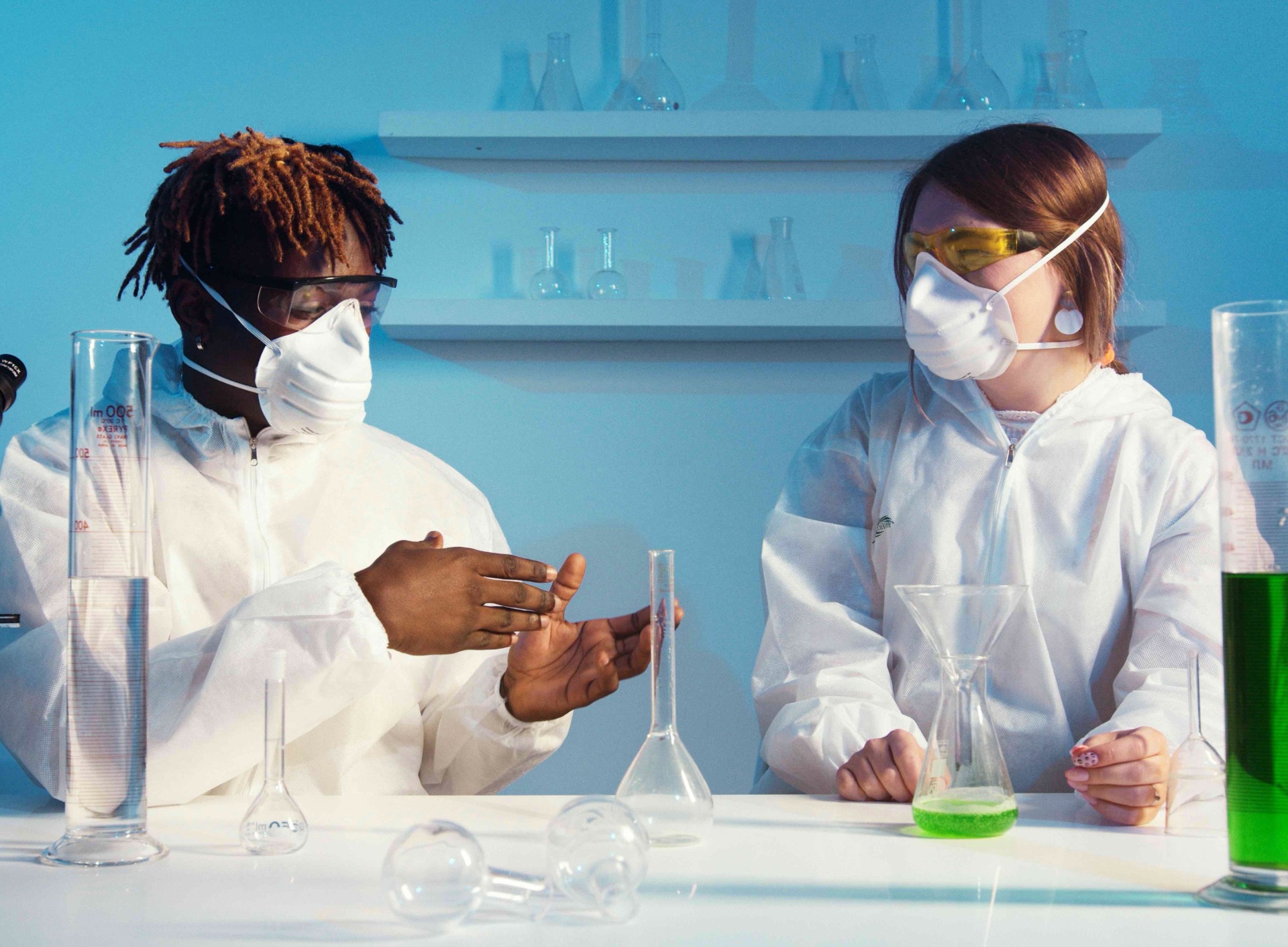Teaching STEM During the Pandemic

If you're reading this you probably already know something about the challenges of teaching STEM during the pandemic. STEM teachers are experiencing all of the issues other teachers are - from personal technology and connectivity issues (kids and teachers), to poor attendance by some students and low engagement across the board, to figuring out how to revise each lesson so it has a chance of working remotely.
As a second-career teacher coming from an informal science environment, I personally spent thousands of dollars on materials and equipment to outfit my classroom with the stuff I felt was needed to turn text-based lessons into inquiry experiences, and then had to come up with a system to manage all of that stuff (it was pretty messy at first). If I were in the classroom now, most of those materials and the associated lessons would go unused, even after a return to in-person learning, because COVID-19 protocols do not allow for close interaction between students or sharing of materials. Even supplying sanitized safety glasses for every student seems like an impossible task.
So what's the next best option? STEM teaching experts recommend using videos and simulations in place of hands-on investigations (okay for a supplement, but generally not a replacement for the real thing), creating lessons around very simple materials that students either have access to at home or can easily be sourced and supplied to large numbers of kids (metal washers and a big ball of string?), and doing high-impact demos to get kids talking and thinking about phenomena (much better in person than remote).
In a September 2020 article in The Journal, James Palcik recommends providing real data for students to analyze in conjunction with the videos and simulations as a way to give them practice making evidence-based claims and using data to back up their arguments. I know from my own students, and from those who have taken part in piloting some of the classroom assessments created by the research team I currently work with, many middle schoolers struggle to recognize meaningful patterns in data and have difficulty using those patterns to make sense of phenomena. I also know that finding these data sets can be time-consuming, and extra time is something most teachers do not have, so I decided to create a list.
Please keep in mind this list contains links to activities that were probably tested with students at some point, but not necessarily by me and not during these challenging times, so proceed with caution. I will add NGSS references and other details where possible to help you determine if the materials might be appropriate for your curriculum and students.
Some Data-rich Lesson STEM Resources
- NOAA's Data in the Classroom project. Topics include coral bleaching, sea level rise, water quality in ocean estuaries, ocean acidification, and El Niño. Standards depend upon individual lesson content; data are typically presented in the form of maps. Teachers can download lesson materials or have students work through lessons online. Content and reading levels may be a stretch for some students, however, the variety of forms available do allow for customization. Student modules include imbedded assessments.
- The Ocean of Data Institute Real World, Real Science Curriculum Modules are somewhat Maine-centric - lessons are the result of a NASA-funded collaboration with the Gulf of Maine Research Institute - however they also offer different ways for teachers and students to interact with the material. Direct links are available from the lesson listings to interactive student modules that use the Concord Consortium's LabVenture Platform. Topics include Global & Local temperature: The Shape of Change: Marine Ecosystem: Lobsters & Black Sea Bass; Forest Ecosystem: Ticks & Lyme Disease; Freshwater Ecosystem: Ice-Out. Data is presented in a variety of forms. Student module includes imbedded assessments.
- Check out the many project listed on the Data Nuggets website. Data Nuggets is a project founded by Michigan State University scientists and teachers to give students practice making claims based on evidence. Project are rated on a scale of 1 - 4 with the 2's and 3's most appropriate for middle school. Most of the projects appear to be related to life science and ecology, but with so many to choose from, you are bound to find something of interest. Some projects have associated videos.
- Check back here for more links..
Image Credit: Photo by Artem Podrez from Pexels